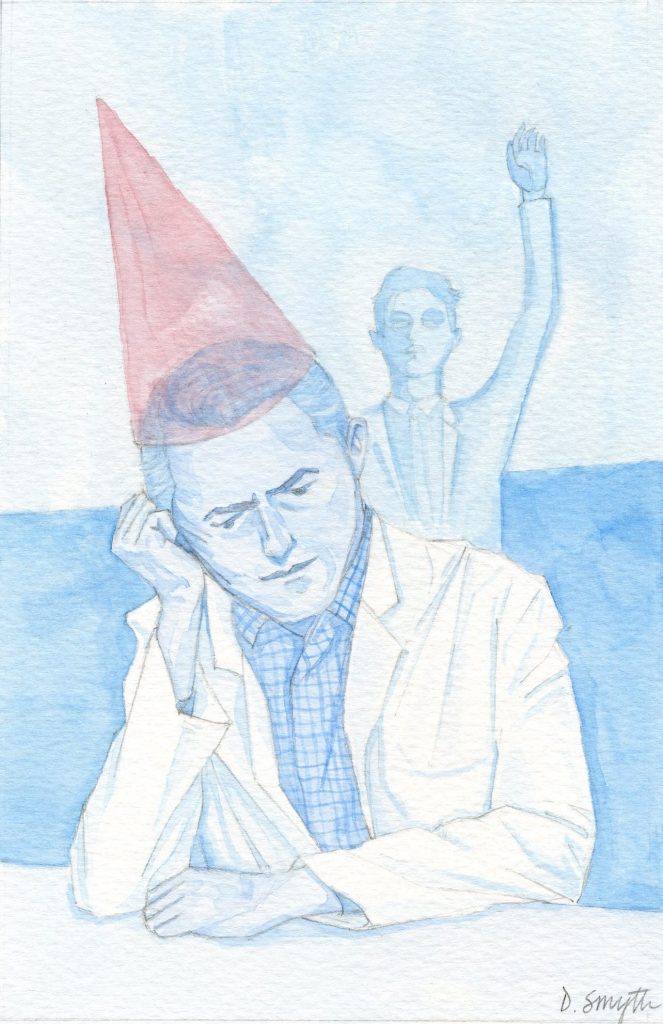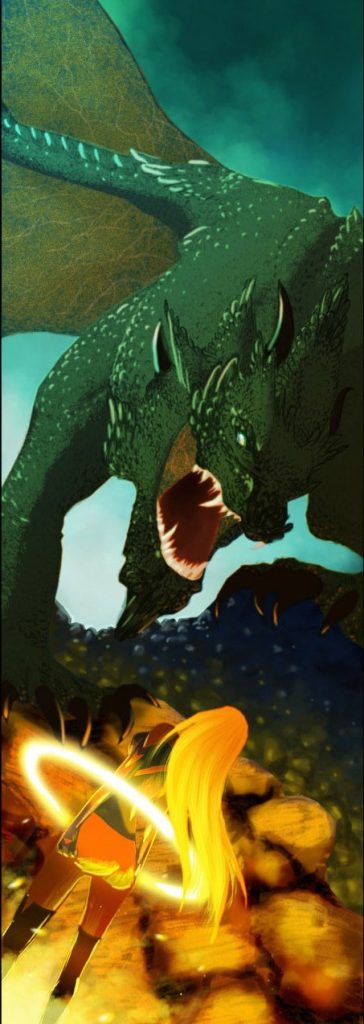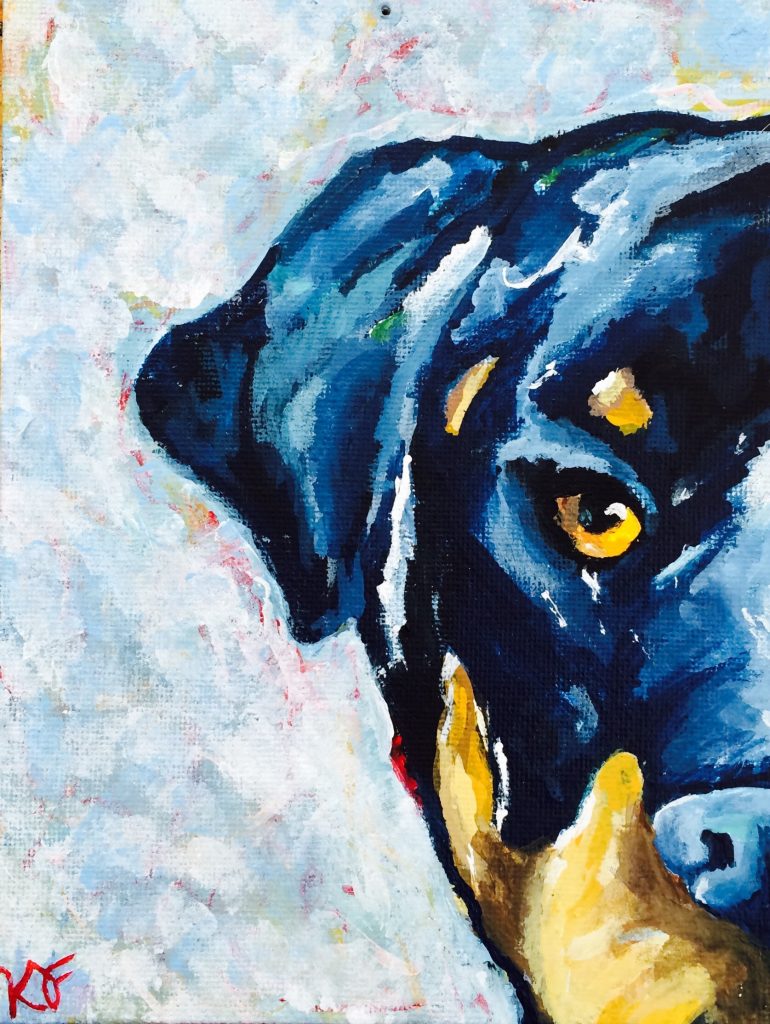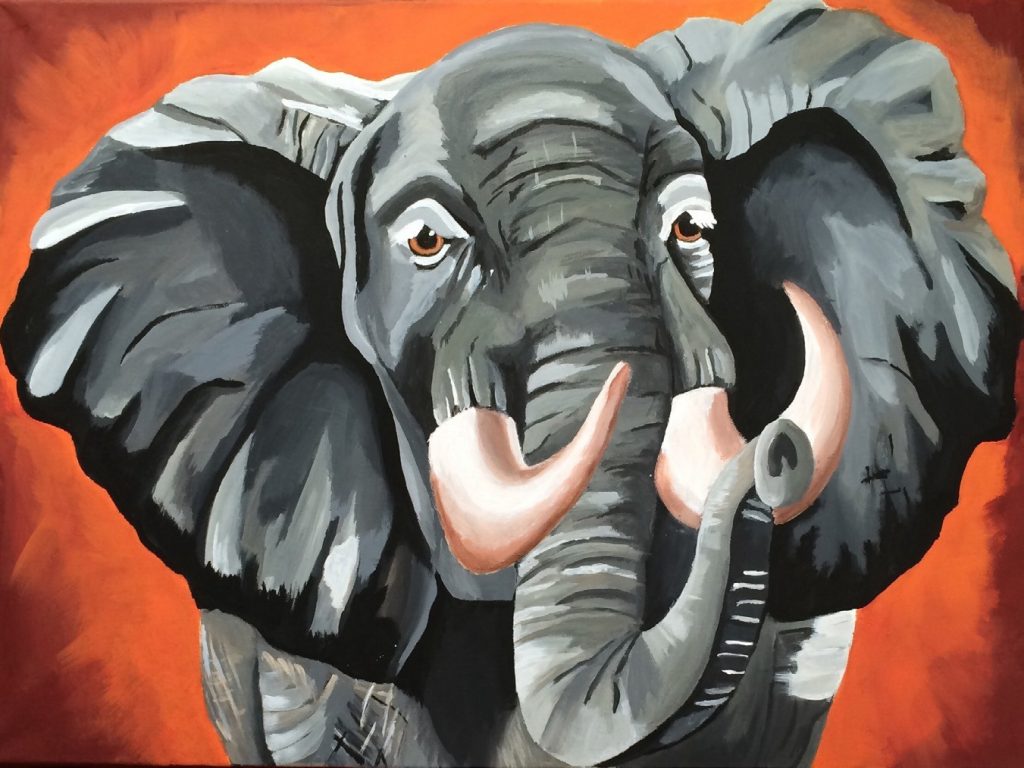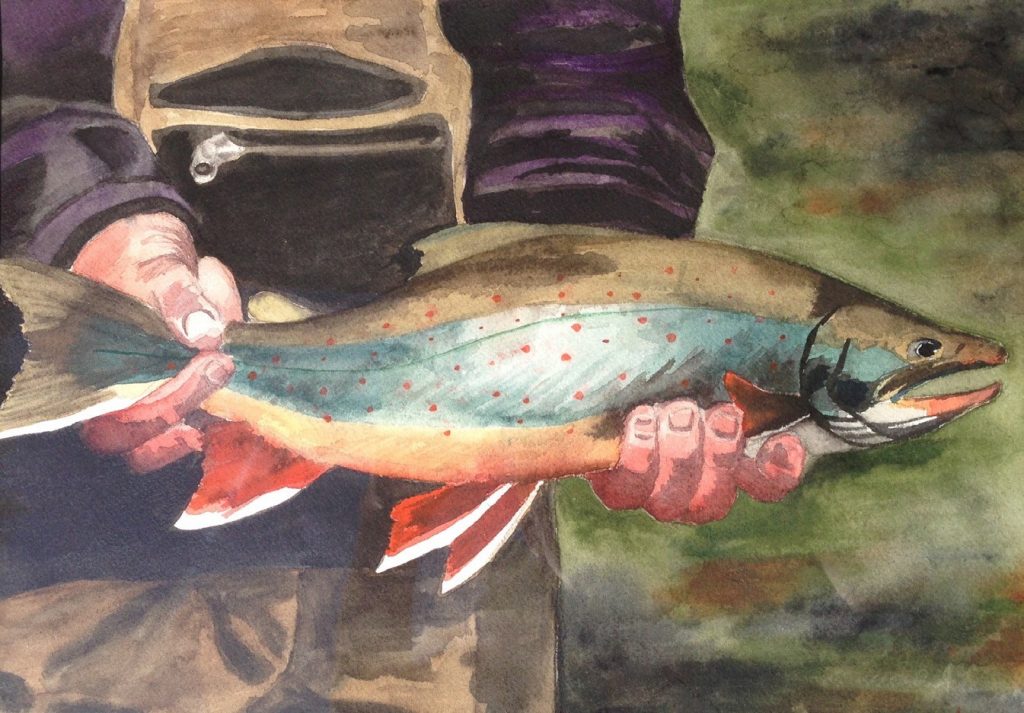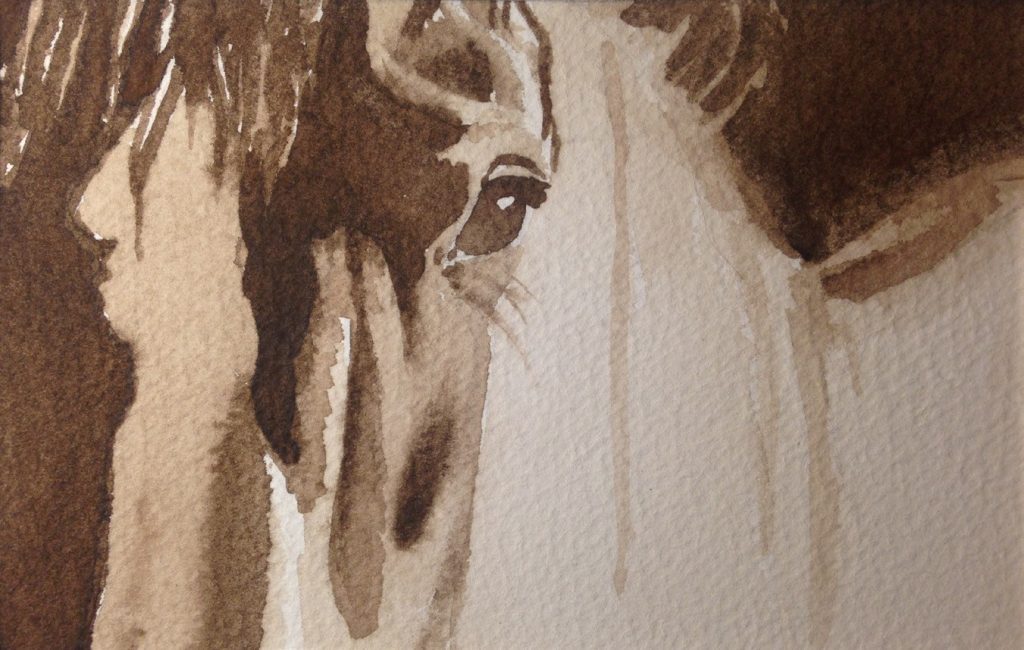A Message from the Editors, 2015 Rubor Volume 3
We hope you enjoy the third issue of Rubor: Reflections on Medicine from the Wasatch Front. We would like to express special thanks to the Division of Medical Ethics and Humanities at the University of Utah, as well as the University of Utah School of Medicine Alumni Association for providing financial support for this publication. Without their generous donations we would not have been able to publish our current issue.
We started Rubor three years ago to provide a space for students, health care providers and patients to explore the art of healing and medicine through prose, poetry, photography and visual art. Our goal was to create a dialogue about the challenges and triumphs of health care and to encourage creative expression among people of the University of Utah health sciences.
Rubor greatly appreciates and depends on contributions from our community. To view additional submissions that were published online, please visit rubor.med.utah.edu.
Thank you for reading, and we hope to hear from you!
– Rubor Staff
Editor-in-Chief
Quinn Orb
Associate Editor
David Smyth
Layout and Design
David Nolte
Madison Hunt
Staff
Gabriela Cash
Sarah Dunham
Elizabeth Nelson
Lauryn Roth
Jacob Saunders
Faculty Advisor
Gretchen Case
Front Cover: Willis, watercolor on paper by Jacob Saunders
Back Cover: In Memory of Porter, acrylic on canvas by Kelly Frappier
Creation
Pas Seul
Luke had been up for more than twenty-four hours on his second day of work, and was starting to hallucinate. Or maybe, he thought, this was how the hospital really was at night. Possibly the hospital was like this during the day, too, but he had been too crazy busy to notice the walls gently pulsating, close to 60 bpm, his normal heart rate when he wasn’t Red Bulled to his eyeballs. He was nearing the end of his first call shift as an intern. His ears rang a little.
He sat on an empty patient bed in the temporary bed storage room, swinging his long legs, pointing his feet. The emergency room was quiet, unusual on a holiday night. No bites from dogs made frantic by illegal fireworks, no eye injuries from unsupervised children playing with illegal fireworks, no burns from idiots setting fire to their parched back yards with illegal fireworks.
Quite different from his first experience of patient care two years ago as a third year medical student. His group of students had spent a great deal of time fantasizing about their first “real” patient, one who was in a hospital bed, not sitting in a chair in a clinic. His was going to look just like a prince he had seen in a pas seul as a child. Longish light blonde hair, almost palomino-colored, fine straight nose, light blue eyes with long lids. Mobile mouth, against the company look for the New York City Ballet, which frowned on individualism. Dancing with an invisible princess, the “alone” in the pas seul, a solo but with a partner who does not exist. The prince had made his ghost princess startlingly real, fascinating Luke by how he conjured her up, leaning very slightly off vertical to kiss the air or supporting her as she turned. The princess was definitely shorter than the prince, and somewhat hesitant. Luke had sworn he could see the princess kiss the prince back. He had started dancing because of it, although eventually he left ballet behind for the practical career of medicine, and now surgery, in the real world. Like his father.
At times during medical school, he had been reprimanded for daydreaming, choreographing while standing in turnout, eyes not tracking on the professor, but otherwise he was all medical now. The only legacy he recognized from his ballet days was physical endurance, which came in very handy during the long shifts demanded by his medical training. He often won the medical school contest for record time holding a retractor without a break. His record was nine hours during a surgery to separate conjoined twins.
Medicine had not quite lived up to his fantasies. His real first patient had been a demented old woman, not a prince at all, small but strong as hell with scraggly grey hair (the witch, he thought, still in fairy tale ballet world), who had pooped in a wastebasket while he had his back turned for a second.
At the time, he felt like Cinderella. Medicine is very Disney, he thought now. One more reason if he needed one to be a surgeon, not an internist. A surgeon could make something from nothing, like a choreographer using meat and vessels and bones instead of dancers. And the surgeon is the choreographer and the prince; what could be better? He smiled. Cutting was good, and he would be doing some in the next few hours, he hoped. His first time as a real doctor, not just a medical student. Some surgeons let interns do a lot, but some were mingy and slow to trust them. Us.
Although exhausted, he was too excited to sleep. His first surgical patient would be a beautiful young man, with longish light blonde hair, almost palomino-colored, a fine straight nose, light blue eyes with long lids. A mobile mouth, even intubated for anesthesia.
Now, in the dusty low light of the bed storage room, Luke hung up his white coat and rewrote the story of his once and future patient. He brought his bed front and center into the empty space in front of the stored beds. He took the right high handle at the head of Bed and bowed. The silent bed audience looked back at him. He returned the look and began to dance with his Bed. First toward Bed, boureeing in but careful not to come so close that he might see his first surgical patient, who was under the blankets but turned away from him. It was too early. Backing away, around to the head of the bed, pushing Bed now, helping Bed turn in wide circles from the fulcrum of the handles. Bed drove like a grocery cart, clunky and graceless and rear wheel drive. He decided not to help Bed jump. He waggled Bed across the space, neatly quartering his stage. At intervals, he came close, grabbing Bed’s handles as though he were going to do an upside down lift, with himself rather than the ballerina being lifted, and by Bed, not the princess.
But he was a coy Luke, and as the pas seul gained momentum, a struggle emerged between himself and Bed. He wanted to see his first patient, and Bed wanted to conceal, protect. Finally, Luke made it around to Bed’s left side by vaulting over the headboard. He could almost feel the tension slack as Bed gave up and let him look.
Still coy, he danced away to perform his own 32 fouettes, just like the ones in Swan Lake, sweat flying off him like a carnival spin painting. Before Bed could swing away on its own, he ducked his head under his curved, upraised arm and moved it a little so he could see his first patient. Longish light blonde hair, almost palomino-colored, fine straight nose, light blue eyes with pale irises and long lids. Mobile mouth.
Luke gripped the bed’s handles and pushed himself up to a handstand, then pulled his right leg into an attitude, his foot and leg making a right angle to the middle of his back. He arched his back more to adjust his balance, then leaned in and kissed his first patient on the lips, over the top of the headboard, his patient, his sleeping prince. The boy in the bed shimmered, then faded. Luke rolled care- fully down to the floor, a light sheen of sweat on his forehead, ribs showing sweat through his scrub top, breathing hard. He dug his phone out of his white coat. Now he could sleep. If he was lucky he could grab a half hour nap in the storage room. He set his phone for thirty minutes, and added notes to his list: reheat lunch ramen, come out to faculty/staff/residents, check lytes on 269. Two six nine had looked a little dessicated when he had last seen her. He pulled back the covers, got into Bed, set his phone on the mattress by his ear and went off to sleep.
Impostor
The Mentor
Can my med student follow?
You have active TB
Please put on display
Your pathology
Can my med student follow?
Your heart murmur sound
Is unlike another
We have heard on the rounds
Can my med student follow?
Your lung cells have spread
Even as you may wonder
If this will be your last bed
Can my med student follow?
For soon I will cede
This mantle, and white coat
To the students we need
In any result
Can he follow me?
This classroom is more telling
Than any book he may see
Taming the Beastie (Step 1)
On dying, loss, and medical school. A bit of candor
One autumn morning, two men came to take my mother away. A few hours earlier our hospice nurse had come to the house to change her clothes, brush her hair, and put on sandals my sisters picked out. Silently and ceremoniously the men lifted her off a hospital bed in my old bedroom and put her on a stretcher. As they made their way down the front porch steps, in a moment of dark and much-needed humor, we made a joke about her sliding off the stretcher on accident. And she was gone. A few days later, I went back to school, my family back to work, and life continued. In a strange, lopsided world without the person who had been its center, we looked to celebrating her and soaking silently in our grief as best we could.
I learned a lot in my first 18 months of medical school. Like everyone else, I stretched my capacity for knowledge and stress. I made friends, and lost a couple too. I also learned I could go through medical school while losing the most important person in my life. Many people have asked me how I came to class or survived school through that loss. I know I am not the only one to suffer a tragedy this year or in others, nor do I perceive myself to be nearly as composed about it as some may think. I am far from healed and I think I will always be processing her death; it is overwhelming to wake up in a world where my mom is not living. Now I am engaged to a career that will always holds triggers and reminders of personal pain. This is our reality – as medical students, we are taught to draw on our experiences and emotions to relate to patients and show empathy. But how do we draw on the experiences that are so hard to relive?
I do not have any answers. It is not something I have been eager to discuss outwardly, but I am compelled now to relive and to share with you my unique truth of loss and medicine. So, I take you back to the beginning, to the summer before I began medical school.
That was when a rare cancer took its hold of my mother, a lifelong worrier and picture of good health, with sudden and frightening force. She got treatment through the fall, and we looked forward embracing the hope of life cancer-free. I held on to that ignorant bliss, but by June the malignancy made known its rampant recurrence. Despite all of the brains working toward a solution, it was uncontrollable. We spent the summer trying to enjoy simple pleasures, riding the roller coaster of treatments plus illness, and clinging to but often losing faith that she would survive. When things did not seem they could get worse, they did. Then on a hot Thursday in August I got the call solidifying my worst fear. It became clear we were out of options.
Time changed quickly from if we were going to lose, to when. I agonized no longer over how to save her but how to let go. I looked in to taking a leave from school and moving home to Oregon long before we knew the final outcome, but my mom would not hear of it. She wanted to believe we all had hope of bright futures and life beyond cancer. It pained me not to drop everything and go, but I realized it was what was best for us. It did not matter that such a choice would be different for anyone else. So I muddle along through school and life in Utah and planned weekends to be there. She slept while I studied at her bedside, we had meals on our patio, and we made the most of the idea of time. Time gave just two of those weekends.
On a quiet day in early September, my mother left. It was not beautiful, but it was kind, and it allowed us to be there. That was all she wanted in the end. I learned for the first time that day about a person’s long, last breaths, and the sound of silent, un-beating heart. Still, like a petulant child, I clung to her as she left and begged her not to go. Mostly I learned that day what it was like to be a child without her mother. It is still the most terrifying reality for me to face.
I had known loss and death as an acquaintance before this year. Like or unlike many of you, this kind of pain was something I saw as a distant nightmare. I had known suffering and held losses of others’ close, but my darkest adversities were only personal until now. I always imagined myself being a good woman in a storm-calm, graceful, and courageous. I imagined if tragedy struck it would play out like a film: there would be cathartic cries and sad music would ring as I picked up the pieces of my life. I imagined composure. I did not know what to imagine. It did not matter how eloquent I was, how smart, or how strong, I could not escape the incredibly wrong way life feels when loss becomes real.
Losing my mom was the unimaginable. The five stages of grief meant nothing to me, and still don’t, perhaps because I still live them. From the moment she got sick to the day she passed away, I felt frozen. I was a small piece of the puzzle holding my family together, but I remember it all as a chaotic haze. I wanted to be strong for those around me. I knew that no matter how tremendous of a pain I felt, everyone else had pain that was real too – but I struggled to be empathetic to anyone but my family and myself. I wanted to be a supportive friend, but my emotional capacity was stretched too thin. Social interactions became regularly difficult and awkward. Blurting out that you look tired because your mom is dying does not make easy conversation, but sometimes I felt compelled to be honest. People did not know what to say to me, nor did I know what to say back. I was flustered by anyone who that wanted to talk about her, but bothered if I felt they ignored it. I wanted advice, but was bitter when people wanted to tell me how to feel or what to do. I did not want to participate in class, but I did not want special treatment. I was so angry with classmates for complaining about school being hard, when I wanted to fall apart but I had to study. I could not understand how people were still going about their days so normally, and how the world was still spinning.
“It gets easier with time,” people say. It does in ways, but this was my least favorite platitude. I did not want time to keep moving, nor for it to get easier. I needed my grief to feel fresh to feel like she was with me. It is scary to think about moving further away from the life my mother was in – and making more memories or building a life without her. No words offered, true as they may be, can comfort that reality. That life, no matter how much I remember her, how much she is with me, or wants me to be happy, goes on without her in it. She is not present in the same way now and she will not ever be, and that makes the idea of time moving forward very scary.
But months later here I am. I slowly find myself less conflicted in balancing all of those emotions. I still reach for the phone to call her, and I get caught up in missing her and reliving the past, or thinking of the future we did not get. I see her in old ladies and I ponder who she would have grown to be. I freeze in moments of a sadness so forceful I cannot comprehend. But, like everyone, I have moments of laughter and feeling light; or I am sad about other things like a bad test score or a patient with a rough, sad story. My times of sadness and happiness have changed, but they are both still there. Keeping the pain of her death with me, even if subtly, keeps her close. Whether the moments that take your breath away become less frequent, or if you become more capable at handling them, I do not know.
Time, inevitably, continues on. You do whatever the hell you are going to do. It is not about a particular way of moving forward or looking backward, and there is no measure of grace. For me, it works to be in school even when my computer keys are soaked with tears or people are staring. I learned I needed to ask for help, and even to rely on it at times. We will all experience our losses with potent differences, and there is no right or wrong. Some tragedies you cannot understand unless you know them yourself, and there is no way to go about them that is “well.” It is okay to feel weak and messy one day and strong the next. It is often ugly, and rarely pretty. It simply is.
I wish the end of this story was not sad, but my story will not end here. None of ours do. To lose someone so close is awful, but life does not have to always be awful because of it. My hope is that one day I am that calm person in the storm, and that I can relate to patients in ways I could not before. That, no matter how wrong or sad I feel, I continue to work at life in ways that are good. We take on the challenge of enduring our own losses, drawing on our experiences, and being a part of other people’s suffering, in the challenge of learning to be doctors. I see my own mom in every mother I see, and myself in every kid – and with that I see hope in healing myself, too. Medicine did not save my mom, but it gave me a year, and the chance to say goodbye with peace. I will always be amazed and grateful for that. My mom was my favorite person. There is no lesson in living life without her, except how much I appreciate having had her worries, love and memories. And how much better happiness is when you can share it with someone you love as much as I loved her.
Untitled Photograph II, by Ashlee Pinegar
Beat, beat
Beat, beat
I hear your heart
Beat, beat
simply by putting my ear
Beat, beat
to your chest.
Beat, beat
But can I hear
Beat, beat
the secrets that you hold
Beat, beat
deep in the depths
Beat, beat
of your beating heart?
Beat, beat
Can I hear your tales
Beat, beat
of heartache and sorrows?
Beat, beat
Can I hear the love
Beat, beat
that you hold for life?
Beat, beat
No. I can only hear
Beat, beat
the mechanical thump
Beat, beat
of your heart on the job.
Beat, beat
Beat, beat
Then, I hear it stop.
As the buzzers beep and the alarms blare,
there is no more sound from within.
Silent. Still. Your stories gone.
In Memory of Porter
Old Memories
Trout
Heartless
One morning Dr. Freeman woke up in somebody else’s bed. Well, at least it wasn’t his bed. It smelled like bleach, and the mattress inflated and deflated at sporadic intervals. The sheets were thin and scratchy, and his feet poked out from under the blanket. He could hear a familiar beeping noise that didn’t immediately register. He also heard a thumping sound that occurred with the regularity of a heartbeat. He was able to half open his eyes, but everything was out of focus. What was most concerning, however, was the tube coming out of his mouth. It was pushing air into his chest, and right as his chest wall began to relax, the tube delivered another gust. He tried to blow his air out, but burst after burst of air forced its way into his lungs, until he felt they were going to explode. He started to gag forcefully in an effort to expel the tube, but it was in vain. He heard a loud alarm sound from the machine to his left, and a short woman in a white shirt quickly came into the room, pushed some buttons on an IV pump, and then Dr. Freeman felt very sleepy.
***
“Tom,” someone said. Dr. Freeman stirred. “Tom, can you hear me?” Dr. Freeman recognized the voice. It was his colleague, Dr. Quincy. “Tom, I know you probably can’t hear me, but our intern is going to quickly update me about your hospital course, okay? Go ahead, Dr. Jensen.”
Dr. Freeman heard a squeaky voice, “Mr. Freeman, ahem, I mean, Dr. Freeman, is a 73-year-old man with a past medical history of hyper- tension, dyslipidemia and alcoholism, who was found down in front of his home 4 days ago. He was transported by EMS to the hospital, where he was found to have an anterior ST-elevation myocardial infarction. He was taken to the cath lab emergently and received two stents to the left anterior descending artery. His course has been complicated by cardiogenic shock requiring dobutamine, norepinephrine and vasopressin and an intra-aortic balloon pump. He has also developed respiratory failure, alcohol withdrawal and an upper gastrointestinal bleed. In the last 24 hours . . .”
Heart attack? thought Dr. Freeman. You’ve gotta be kidding me! I’m a cardiologist! Who does this bozo think he is? And I am NOT an alcoholic!
“Okay, Tom, we’re just going to examine you now,” said Dr. Quincy. Dr. Freeman felt the cool rim of a stethoscope rest on his bare chest.
“Did you hear the S3 gallop?” asked Dr. Quincy. “It sounds like ‘Ken- tuck-y, Ken-tuck-y, Ken-tuck-y.’ Coincidentally, it also sounds like the introduction to the U2 song, Beautiful Day. What does an S3 sound indicate, Dr. Jensen?”
Dr. Freeman heard that same squeaky voice. “It means the patient has heart failure.”
“What did the echocardiogram show?” asked Dr. Quincy.
“He had an ejection fraction of 20%, with an aneurysm of the apex,” replied Dr. Jensen.
“What other exam findings suggest that Dr. Freeman has heart failure?” asked Dr. Quincy.
“Well,” squeaked Dr. Jensen. “He has cool extremities with poor capillary refill.” Dr. Jensen squinted like he was thinking hard. “He has narrow pulse pressure too.” Then a light went off in his eyes. “He also has jugular venous distention to the angle of his jaw.”
“How would you describe that distention in millimeters of mercury?” asked Dr. Quincy.
Who the hell cares? thought Dr. Freeman. You sound like a raving lunatic, Quincy. I’m on a balloon pump for crying out loud. Stop torturing that idiot house officer.
“Let me teach you a trick that Dr. Freeman actually taught me when I was a cardiology fellow. You take the elevation in jugular venous pressure in centimeters of water, divide by 1.3 . . .”
Look, Quincy, thought Dr. Freeman, I’m touched that you were so moved by my exposition of jugular venous pressure, but seriously, what is going on here? I’m on inotropes and pressors and a ventilator. How about you skip to the part where you’re going to cure me.
Several minutes passed as Dr. Quincy reviewed exam findings, labs, electrocardiograms, and imaging with the residents and fellows. Fi- nally the exhausted Dr. Jensen got to the pinnacle of the presentation, the “assessment and plan.”
“In summary, Dr. Freeman has cardiogenic shock secondary to a transmural infarction. He is not improving on the balloon pump, inotropes or pressors alone. His systolic pressures are low and his urine output has dropped off over the last two days. He needs more mechanical support, like a left ventricular assist device. However, given his age, alcoholism and lack of social support, the LVAD team does not feel he is a candidate.”
Whoa, whoa, whoa! Given my age?! I’m only 73, you moron! I’ve got YEARS of life ahead of me. And why are you perseverating on this alcoholism thing? I’m not some low-life junkie out there drinking hand sanitizer. So what if I like the finer things in life? I’m a connoisseur, not a wino! As for my “lack of social support . . . “
“Has anyone been in touch with his family?” asked Dr. Quincy.
“Dr. Freeman is single. Di- vorced times three. He has one estranged daughter back east, but no one has been able to reach her,” replied Dr. Jensen.
“Well, team, you’re doing everything you can,” started Dr. Quincy. “You are to be com- mended for that. It’s rather tragic, really. Dr. Freeman was a great man. But let’s not give up yet. It’s not time to pull the plug. Why don’t we go up on the lasix drip and add chlorothiazide. Do we have any room to go up on the dobuta- mine?”
Dr. Freeman didn’t hear the intern’s response. The team shuffled out of the room, reaching for the hand sanitizer by the door on their way out. Dr. Freeman lay motionless. The only sound in the room was the constant thumping of the balloon pump and the breaths of the ventilator. He thought back to the night eleven years before when his daughter, Rebecca, had told him she wanted to marry a man she met in law school. He had made some offensive remark about the man’s ethnicity. “He probably just wants to marry you so he can stay in this country.”
He remembered seeing the hurt in her eyes, but he didn’t stop. Re- becca patiently waited until her father’s diatribe was over, and then walked to the front door. That was the last time he had talked to her. He thought about the wedding invitation still sitting on his dresser at home, and the apology letter he had written, but never sent. He had never met his two granddaughters, and now it looked like he never would. R
Horse
Untitled Photograph I, by Ashlee Pinegar
ICU Lullaby
My love for you grows in silence
Your tiny hands are still
The band around your wrist tells the world you are mine
Yet you seem farther than ever before
I tell myself you can hear me
So I talk to you through the night And sing your favorite lullabies
I feel the pain you cannot tell me And remember what you will not
When you are older I will sit at your bedside
And tell you of the time when you had to forget
And lay still in a metal bed, like sleeping beauty
I will not tell you about the lines, and tubes, and beeping sounds
Reminding me every minute that we were not in a fairytale
Instead, I will say you were brave
And never alone
I will tell myself I did not wait too long to call
And maybe I will believe it
Then I will watch you drift to sleep
With the peace of knowing
That in the morning You will wake
Production Credits, 2015 Rubor Volume 3
EDITOR-IN-CHIEF
Quinn Orb
ASSOCIATE EDITOR
David Smyth
FACULTY ADVISOR
Gretchen Case, PhD, MA
STAFF
Gabriela Cash
Sarah Dunham
Elizabeth Nelson
Lauryn Roth
Jacob Saunders
Layout and Design
David Nolte
Madison Hunt



